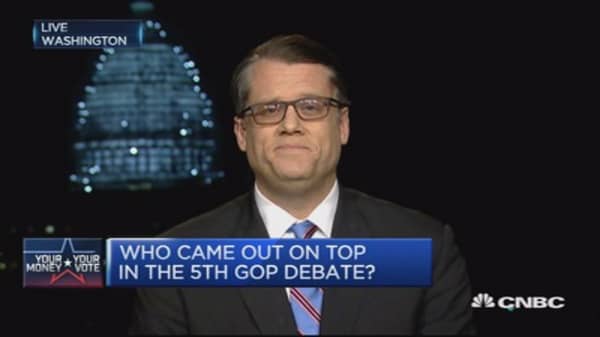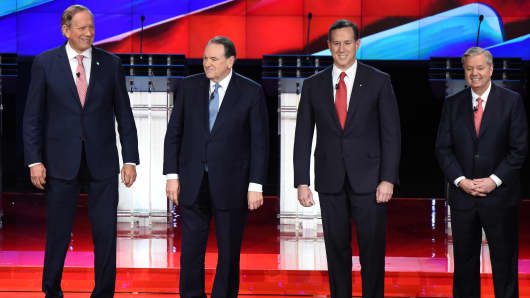Retirement never comes easy when you have experienced the spotlight, but it's time for several GOP candidates to step aside for the good of their party.
Good night Ben. Carly, you had a great run. Pataki, Graham, Santorum and Huckabee: you don't even poll high enough to make the main debate. If you really don't want Hillary Clinton to win the presidency – as you all claim – then put aside the ego and allow GOP voters to get a more substantive look at the candidates resonating with voters.
Throughout the night, Carly Fiorina struggled to stand out. At one point, she took on the moderators for not giving her an opportunity to speak. It wasn't pretty, especially as she hastily tried to speak over the moderator who politely asked her to wait her turn. She had her moment earlier in the race. It seems to be over now.












